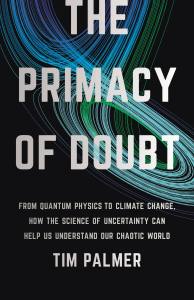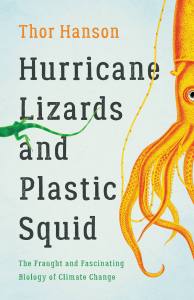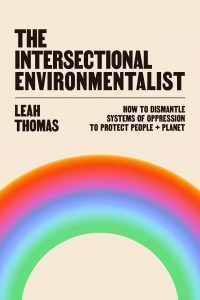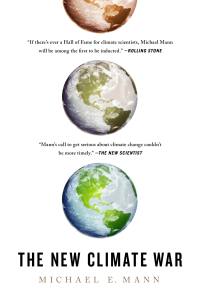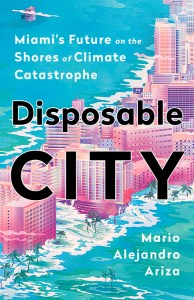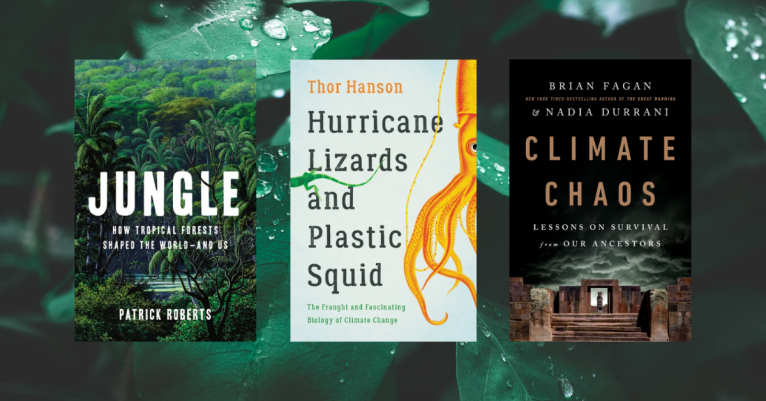6 Books to Understand the Climate Crisis
The climate crisis is here, and with it has come a lot of climate anxiety. Rather than living with the weight of climate change as a huge, nebulous doomsday event, it can help to learn what exactly we’re up against – and what we need to do next. The books on this list are all by experts who have sorted through the details to soothe our climate fears with solutions as multifaceted as the problem.
Learn how the tools that enabled us to overcome the uncertainty of the weather will enable us to find new answers to modern science's most pressing questions. Why does your weather app say “There’s a 10% chance of rain” instead of “It will be sunny tomorrow”? In large part this is due to the insight of Tim Palmer, who made uncertainty essential to the study of weather and climate. Now he wants to apply it to how we study everything else.
In The Primacy of Doubt, Palmer argues that embracing the mathematics of uncertainty is vital to understanding ourselves and the universe around us. Whether we want to predict climate change or market crashes, understand how the brain is able to outpace supercomputers, or find a theory that links quantum and cosmological physics, Palmer shows how his vision of mathematical uncertainty provides new insights into some of the deepest problems in science. The result is a revolution—one that shows that power begins by embracing what we don’t know.
In Hurricane Lizards and Plastic Squid, biologist Thor Hanson tells the remarkable story of how plants and animals are responding to climate change: adjusting, evolving, and sometimes dying out. Anole lizards have grown larger toe pads, to grip more tightly in frequent hurricanes. Warm waters cause the development of Humboldt squid to alter so dramatically that fishermen mistake them for different species. Brown pelicans move north, and long-spined sea urchins south, to find cooler homes. And when coral reefs sicken, they leave no territory worth fighting for, so aggressive butterfly fish transform instantly into pacifists.
A story of hope, resilience, and risk, Hurricane Lizards and Plastic Squid is natural history for readers of Bernd Heinrich, Robin Wall Kimmerer, and David Haskell. It is also a reminder of how unpredictable climate change is as it interacts with the messy lattice of life.
The Intersectional Environmentalist examines the inextricable link between environmentalism, racism, and privilege, and promotes awareness of the fundamental truth that we cannot save the planet without uplifting the voices of its people — especially those most often unheard. Written by Leah Thomas, a prominent voice in the field and the activist who coined the term "Intersectional Environmentalism," this book is simultaneously a call to action, a guide to instigating change for all, and a pledge to work towards the empowerment of all people and the betterment of the planet.
Thomas shows how not only are Black, Indigenous and people of color unequally and unfairly impacted by environmental injustices, but she argues that the fight for the planet lies in tandem to the fight for civil rights; and in fact, that one cannot exist without the other. An essential read, this book addresses the most pressing issues that the people and our planet face, examines and dismantles privilege, and looks to the future as the voice of a movement that will define a generation.
A renowned climate scientist shows how fossil fuel companies have waged a thirty-year campaign to deflect blame and responsibility and delay action on climate change, and offers a battle plan for how we can save the planet.
Recycle. Fly less. Eat less meat. These are some of the ways that we've been told can slow climate change. But the inordinate emphasis on individual behavior is the result of a marketing campaign that has succeeded in placing the responsibility for fixing climate change squarely on the shoulders of individuals. In The New Climate War, Mann argues that all is not lost. He draws the battle lines between the people and the polluters-fossil fuel companies, right-wing plutocrats, and petrostates. With immensely powerful vested interests aligned in defense of the fossil fuel status quo, the societal tipping point won't happen without the active participation of citizens everywhere aiding in the collective push forward. This book will reach, inform, and enable citizens everywhere to join this battle for our planet.
In this deeply researched, beautifully written, and adventure-filled book, journalist Porter Fox travels along the edge of the Northern Hemisphere's snow line to track the scope of this drastic change, and how it will literally change everything—from rapid sea level rise, to fresh water scarcity for two billion people, to massive greenhouse gas emissions from thawing permafrost, and a half dozen climate tipping points that could very well spell the end of our world.
This original research is animated by four harrowing and illuminating journeys—each grounded by interviews with idiosyncratic, charismatic experts in their respective fields and Fox's own narrative of growing up on a remote island in Northern Maine.
Timely, atmospheric, and expertly investigated, The Last Winter will showcase a shocking and unexpected casualty of climate change—that may well set off its own unstoppable warming cycle.
Miami, Florida, is likely to be entirely underwater by the end of this century. Residents are already starting to see the effects of sea level rise today. From sunny day flooding caused by higher tides to a sewer system on the brink of total collapse, the city undeniably lives in a climate changed world.
In Disposable City, Miami resident Mario Alejandro Ariza shows us not only what climate change looks like on the ground today, but also what Miami will look like 100 years from now, and how that future has been shaped by the city’s racist past and present. As politicians continue to kick the can down the road and Miami becomes increasingly unlivable, real estate vultures and wealthy residents will be able to get out or move to higher ground, but the most vulnerable communities, disproportionately composed of people of color, will face flood damage, rising housing costs, dangerously higher temperatures, and stronger hurricanes that they can’t afford to escape.
Miami may be on the front lines of climate change, but the battle it’s fighting today is coming for the rest of the U.S. — and the rest of the world — far sooner than we could have imagined even a decade ago. Disposable City is a thoughtful portrait of both a vibrant city with a unique culture and the social, economic, and psychic costs of climate change that call us to act before it’s too late.
Discover More
